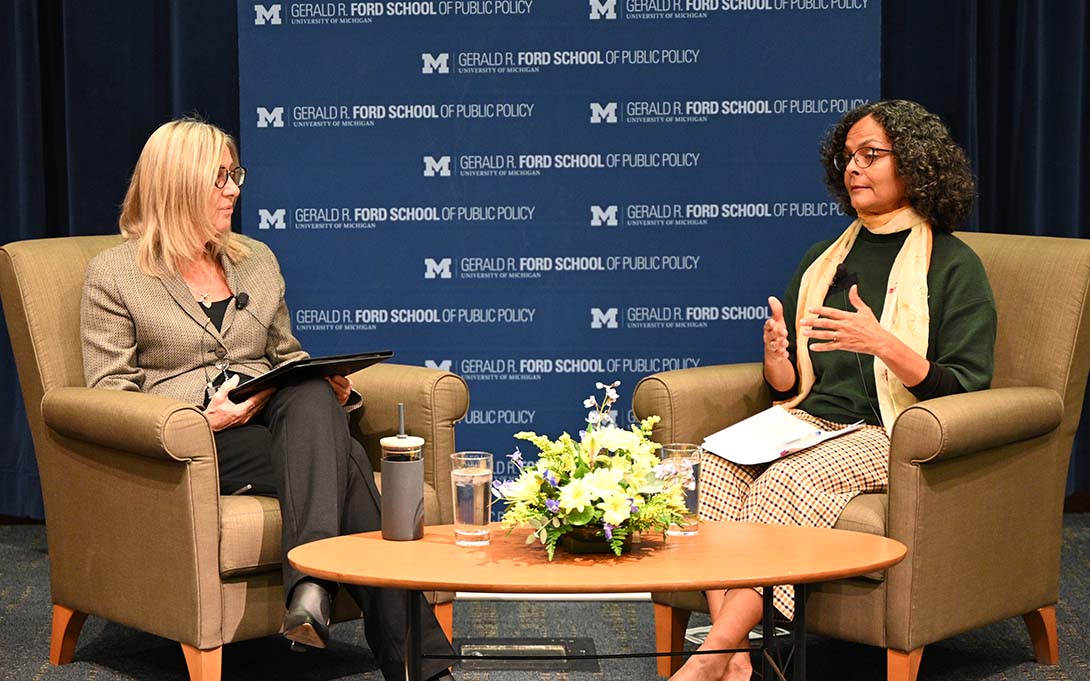
In November, Pregnancy Justice president Lourdes Rivera delivered the 2023 Omenn-Darling Health Policy Keynote address about the landscape of reproductive rights in the United States. While on campus, the Ford School’s Women & Gender in Public Policy (WGPP) student organization invited Rivera for a conversation with around 15 students to discuss her own journey and challenges she has faced in the workplace, and to dive deeper into her work to destigmatize pregnant women who are convicted of crimes.
Colleen Gaffney (MPP ‘24) helped to organize the student conversation. “The policy landscape of reproductive health is rapidly changing with the overturning of Roe v. Wade, and there is a lot of work to be done at the state level,” she explained. “I have always been passionate about policy that impacts women and advocacy to actively protect women’s right to bodily autonomy, so I was really excited to be able to chat with a policy practitioner in a more intimate setting. She was open to answering all of our questions.”
Erin Howe (MPP ‘24), who hopes to work with vulnerable populations in the future, shared that the session was “eye-opening” for her. “I had never considered the population [Rivera] is working to protect and how it fits into the larger fight for women’s autonomy.”
Her perspective also shifted about those who are pregnant and struggling with substance abuse. “I was quick to see it as a moral failing instead of a problem to work through,” Howe said. “Our conversation with Rivera made me reflect on how I should be widening my sympathy for those with drug addiction and that it should not end once someone becomes pregnant.”
Farah Pitcher (MPP ‘25) says she came out of the experience hopeful for the future of women’s rights, despite many steps backward. Pitcher also took away lessons about incorporating her own story into policy work.
Gaffney’s biggest takeaway from the experience was “that social change through policy is not linear.” When Rivera was asked about how she stays motivated in a field that is slow to change, she replied that she maintains hope by understanding change might happen after she is gone. “She said we must ‘fall forward’ and find the little successes along the way. I found Rivera’s resilience and optimistic perspective of policy change to be inspiring,” Gaffney said.
Gaffney also found it fascinating that, “there is a distinction between general reproductive justice and protecting against the criminalization of pregnant bodies.” Rivera emphasized that there is a need for policies that protect a woman’s right to have a child as much as their right not to. “Although both general reproductive justice and protecting against the criminalization of pregnant bodies involve granting bodily autonomy and there is overlap, the work has its differences. The scope of Rivera’s work heavily involves changing policy and social understanding of drug addiction, which is as complicated as the issues of reproductive justice,” Gaffney highlighted.